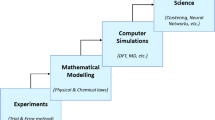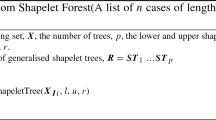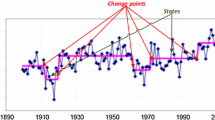Abstract:
Data mining is performed using genetic algorithm on artificially generated time series data with short memory. The extraction of rules from a training set and the subsequent testing of these rules provide a basis for the predictions on the test set. The artificial time series are generated using the inverse whitening transformation, and the correlation function has an exponential form with given time constant indicative of short memory. A vector quantization technique is employed to classify the daily rate of return of this artificial time series into four categories. A simple genetic algorithm based on a fixed format of rules is introduced to do the forecasting. Comparing to the benchmark tests with random walk and random guess, genetic algorithms yield substantially better prediction rates, between 50% to 60%. This is an improvement compared with the 47% for random walk prediction and 25% for random guessing method.
Similar content being viewed by others
Author information
Authors and Affiliations
Additional information
Received 29 August 2000
Rights and permissions
About this article
Cite this article
Fong, L., Szeto, K. Rules extraction in short memory time series using genetic algorithms. Eur. Phys. J. B 20, 569–572 (2001). https://doi.org/10.1007/PL00011110
Issue Date:
DOI: https://doi.org/10.1007/PL00011110




